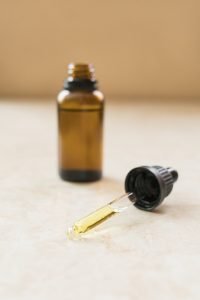
Cannabidiol (CBD) has taken the wellness world by storm, offering a natural alternative for those seeking relief from various ailments such as anxiety, pain, and insomnia. As the market grows, consumers are faced with a plethora of product choices, notably the distinction between full-spectrum and broad-spectrum CBD. Understanding these variations is crucial for making informed decisions about which product might be the best fit for your needs.
Understanding the Cannabis Plant and Cannabinoids
Cannabis sativa, the plant from which CBD is derived, contains over 100 cannabinoids, each with unique properties. Among these, CBD and tetrahydrocannabinol (THC) are the most prominent. While THC is known for its psychoactive effects, CBD is celebrated for its therapeutic potential without the high. CBD products typically come from hemp, a variety of cannabis with low THC levels.
Defining Full-Spectrum CBD
Full-spectrum CBD products contain a wide range of cannabinoids, terpenes, and other natural compounds found in the cannabis plant, including trace amounts of THC (typically less than 0.3%). This combination is believed to produce an “entourage effect,” where the compounds work synergistically to enhance the therapeutic benefits of each other.
Benefits of Full-Spectrum CBD
The entourage effect is the primary benefit of full-spectrum CBD, potentially offering enhanced relief for conditions such as chronic pain, inflammation, and anxiety. Some users report that full-spectrum products provide a more comprehensive relief than CBD isolate, which contains only pure CBD.
Considerations and Drawbacks
Despite its benefits, full-spectrum CBD may not be suitable for everyone. The presence of THC, even in trace amounts, can be a concern for individuals sensitive to THC or those subject to drug testing, as it might result in a positive test. Additionally, the earthy taste of full-spectrum products might not be appealing to all users.
Exploring Broad-Spectrum CBD
Broad-spectrum CBD products are similar to full-spectrum in that they contain various cannabinoids and terpenes, but with one crucial difference: they are processed to remove all THC. This makes broad-spectrum an attractive option for users who want to experience the entourage effect without any THC exposure.
Benefits of Broad-Spectrum CBD
Broad-spectrum CBD allows users to enjoy the benefits of multiple cannabinoids and terpenes without the risk associated with THC. This makes it a suitable option for people who are THC-sensitive, have legal restrictions, or undergo regular drug testing.
Considerations and Drawbacks
While broad-spectrum CBD offers a wide range of benefits, some believe the absence of THC might reduce the overall efficacy of the entourage effect. Additionally, broad-spectrum products can vary in cannabinoid content between manufacturers, potentially affecting consistency and effectiveness.
Comparing Full-Spectrum and Broad-Spectrum CBD
When choosing between full-spectrum and broad-spectrum CBD, it’s essential to consider your personal needs and circumstances. Here are some factors to guide your decision:
Therapeutic Goals
If you’re seeking comprehensive relief and are comfortable with trace amounts of THC, full-spectrum may be more effective due to the enhanced entourage effect. Conversely, if you want to avoid THC altogether, broad-spectrum offers a safer alternative while still providing the benefits of multiple cannabinoids.
Sensitivity to THC
Individuals sensitive to THC or those who experience adverse effects might find broad-spectrum CBD a better choice, as it eliminates the risk of THC-related side effects.
Legal and Occupational Considerations
For those concerned about legal issues or workplace drug testing, broad-spectrum CBD is a safer option since it contains no THC.
Conclusion: Making the Right Choice for You
Deciding between full-spectrum and broad-spectrum CBD ultimately depends on your personal preferences, health goals, and lifestyle considerations. Both types offer unique benefits, and understanding these can help you make an informed choice.
For optimal results, consider consulting with a healthcare professional knowledgeable about CBD to determine the best product for your needs. Additionally, ensure you purchase from reputable brands that provide transparent lab testing, confirming the cannabinoid content and purity of their products.
Final Thoughts
As the CBD market continues to evolve, so too will the options available to consumers. Staying informed about the latest research and product developments can help you make the best decisions for your health and wellness journey. Whether you choose full-spectrum or broad-spectrum CBD, you’re taking a step towards harnessing the natural power of hemp for your well-being.
#ChatGPT assisted in the creation of this article.







